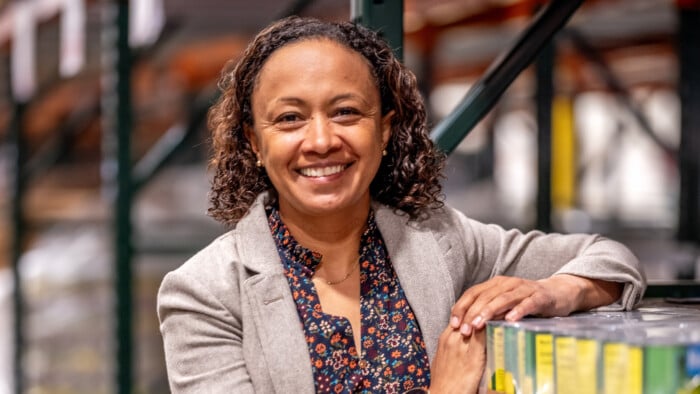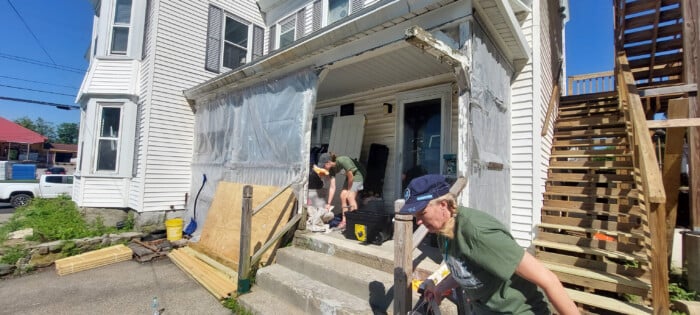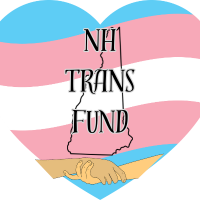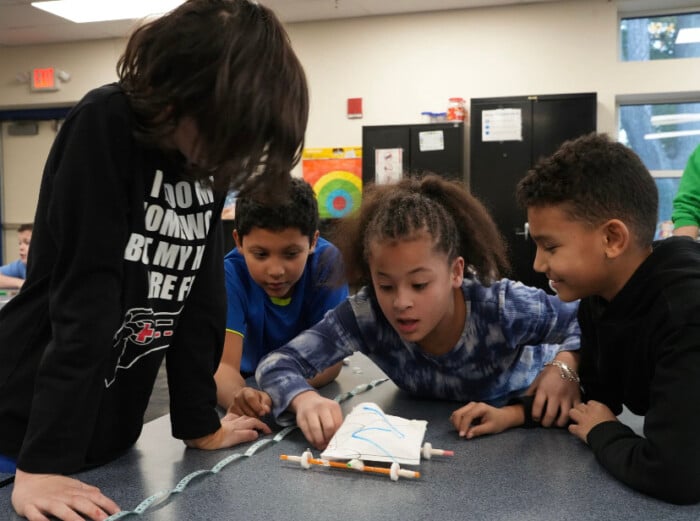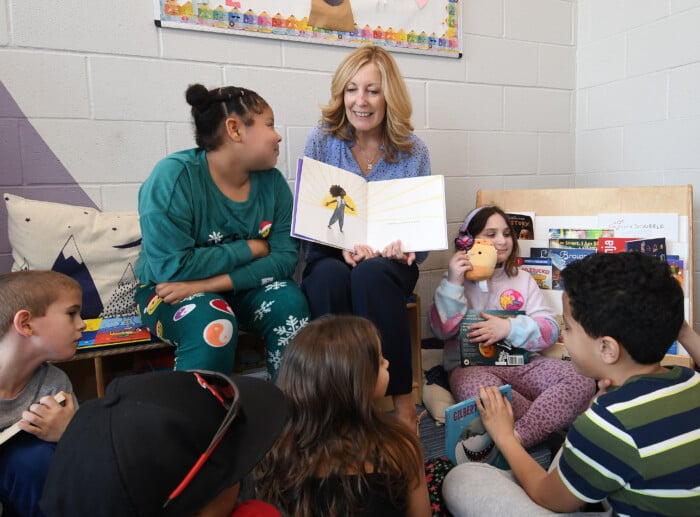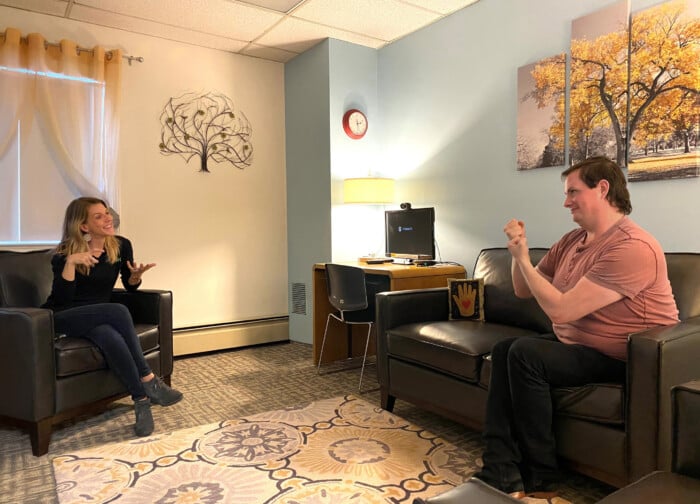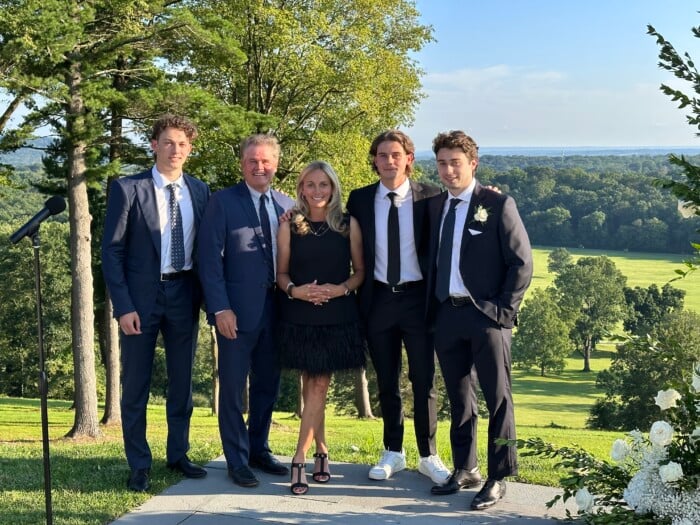Nonprofit Profile: The Lakes Region Mental Health Center
In our "Nonprofit Profile" series, we're introducing you to the many nonprofits from around the state, and the people who are behind them
New Hampshire is home to dozens of nonprofits that provide much needed services and once-in-a-lifetime experiences to Granite Staters. The staff members and volunteers who help these organizations run have hearts that beat for the communities they serve. Our nonprofits play a vital role in every town, in every region of our state, and help make New Hampshire be the best place it can be. In our “Nonprofit Profile” series, we’re introducing you to the many nonprofits from around the state, and the people who are behind them.
For our latest profile, we’re meeting with the Lakes Region Mental Health Center. Read on to learn about how the LRMHC is providing integrated mental and physical health care to those with mental illness, while promoting wellness and understanding within their local community.
New Hampshire Magazine: Tell us about yourself! What is your role at the Lakes Region Mental Health Center?
Maddie Cole: I am the new Marketing Coordinator at the Lakes Region Mental Health Center (LRMHC), and one of two people on the Development Team. We are a small, but mighty team with diverse functions that include development and fundraising, public relations, community outreach, marketing, and event coordination. On an average day, I might support the Director by seeking sponsorships for an upcoming event, updating our donor database, popping down to the local radio station for an interview, editing reports, and posting to social media, amongst other things. We work hard to manage fundraising strategies for our organization and cultivate community partnerships across our catchment area of 24 towns.
NHM: What is the Lakes Region Mental Health Center’s mission?
MC: LRMHC s a private, nonprofit organization designated by the State of New Hampshire as the community mental health center serving Belknap and southern Grafton counties in New Hampshire. Our mission is to provide integrated mental and physical health care for people with mental illness while creating wellness and understanding in our communities.
NHM: When was LRMHC founded and why?
MC: LRMHC was founded in 1966 to provide comprehensive, integrated mental health treatment for people living with, and recovering from, mental illness and/or emotional distress. In fiscal year 2023, LRMHC employees served nearly 4,000 children, adults, older adults, and families, providing over $200,000 in charity care. Under the guidance of CEO Maggie Pritchard over the past 15+ years, LRMHC bought and renovated what is now our office in downtown Laconia and purchased our second location on Highland Street in Plymouth. Maggie is an outstanding leader and she serves as the President of the New Hampshire Community Behavioral Health Association – Lakes Region Mental Health Center is one of ten community mental health centers in the state.
NHM: How did you get involved?
MC: I have been a mental health advocate from a young age! Many people near and dear to me struggle with issues like anxiety, depression, and gender dysphoria. I, myself, was lucky enough to have a therapist throughout high school when I was figuring out my identity as a queer person. Learning to love who I am and understand how my brain works lead me to Clark University where I studied psychology, biology and gender studies. The work that LRMHC does to de-stigmatize mental health issues and minimize barriers to accessing care positively impacts thousands of people. I am proud to be a part of a team of caring individuals, working to improve the quality of life for our patients and communities.
NHM: What services do you provide?
MC: Our core programs include: counseling and mental health services for children and adults, psychiatric emergency services, addiction treatment and recovery, residential and employment programs for adults, older adult and neurocognitive programs, and community wellness education. Evidence-based models of treatment guide everything we do. We work in partnership with other healthcare providers, hospitals, law enforcement, corrections, courts, school districts, social workers and public health officials.
NHM: How has LRMHC grown since its beginning?

Travis Colby, Director of Facilities; Kimberly Goldberg, Director of Acute Services; Kristy Pearce, Assistant Director of Acute Services
MC: In recent years, we have expanded our services to people of all ages, including children and elder adults. We have 200 employees, and utilize a team approach to include therapists, functional support specialists, peer supports, case managers, nurses, psychiatrists, psychiatric nurse practitioners, case managers, and health mentors. Many therapists are certified in specialty treatments, such as art therapy, Eye Movement and Desensitization Reprocessing (EMDR), and Cognitive Behavior Therapy (CBT). Last fall, we received a grant through the Substance Abuse and Mental Health Services Administration (SAMHSA) which allows us, in collaboration with community partners like Belknap-Merrimack County Community Action Program, Navigating Recovery, and HealthFirst, to provide much needed outreach to individuals experiencing homelessness in our catchment area. Effective street outreach is based on forming trust by getting to know each person, so we can better understand their experiences. Building these relationships helps us to engage folks in wraparound services so they can secure housing and start down the road to recovery. We are always looking for donations of essential supplies like: food, water, hygiene kits, and more. Don’t hesitate to reach if you have items you’d like to donate!
NHM: What’s next? What are you looking to do over the course of the next year?
MC: We are very focused on funding. Community Mental Health Centers (CMHCs) are nonprofit, state-designated agencies with a statutory obligation to care for all residents regardless of their ability to pay. Following the expiration of the Public Health Emergency in March of 2023, New Hampshire began the “Medicaid unwind” resulting in many individuals losing coverage. We still provide medically necessary services to people in need, but it has resulted in unprecedented revenue loss and strain on our systems. Simultaneously, we began the massive undertaking of updating our electronic health record, a hugely important investment for the success of our mission and experiences of our patients. We are thankful to have just received discretionary funds from the U.S. Senate, however our work to secure supplemental revenue streams is necessary and ongoing, and our commitment to efficiency and quality is stronger than ever.
NHM: What is the impact that LRMHC is looking to make in New Hampshire and beyond?
MC: We hope to minimize (and one day eliminate?!) any stigma surrounding mental health issues. Mental health issues will always be present. My dream is that we can reduce any negative connotations or experiences someone might have when seeking help AND make mental health services accessible for everyone. For example, I’m really excited about our new Mobile Crisis Response team van! The custom van has been in the works since 2021 and will allow our Mobile Crisis Response team to respond in-person to mental health emergencies in Belknap and southern Grafton counties.
NHM: What has been your favorite part about working for LRMHC?
MC: It’s all about the people. I work with some of the kindest, most understanding people you’ll ever meet who are really passionate about what they do. It’s important to me to feel like I’m making a difference in my own corner of the universe.
NHM: How can our readers get involved with LRMHC?
MC: We have a series of fundraising opportunities for Mental Health Awareness month this May! My two favorites are the 28.2 Mile Walking Challenge and the Annual Art Auction. The 28.2 Mile Walking Challenge is a virtual challenge through Facebook. We’ll be walking (running, hiking, rolling, etc.) in an effort to raise funds for our mission. In 2023, Mental Health America reported that nearly a third (28.2) of all adults with mental illness were not able to receive the treatment they needed. This statistic motivates us to work even harder in our efforts to de-stigmatize mental health challenges, and is the reason why we chose 28.2 miles. Plus, 28.2 is a super accessible number – it’s not even one mile a day! You can join the fundraiser anytime by visiting our Facebook page. There is also an associated Walking Challenge Group where you can track miles, share stories, and connect with other participants. We hope you’ll join us and experience the positive benefits walking has on your mental health! The Art Auction is an annual fundraiser celebrating the creativity of our community members. We receive all kinds of art from all kinds of participants all over the world, including some beautiful vintage paintings, beginner watercolor cards, and a sparkly collage from a six-year-old! There’s something for everyone and you can feel great knowing that part of the sale goes right back to the artist and the rest is donated to LRMHC. Bidding goes live on biddingforgood.com/lrmhc throughout the month of May and you can check out the art in person at our Art Reception in Laconia on Thursday, May 23.
To learn more about the Lakes Region Mental Health Center, their services and how to get involved, visit their website here!



